Conference Program

Conference sponsor
Day 1 - Wednesday, March 13, 2024
Theater One
Maritime battery short course
09:00 - 12:15
09:00
Part 1. Batteries in the maritime space 101
 Dr Ben Gully
Dr Ben GullyChief technologist
SPOC Grid Inverter Technologies
USA
This first presentation will review the background of batteries in maritime, how and where they are used and why they are different from batteries in automotive and stationary applications. The presentation will cover the different types of batteries – form factor and chemistries and the important parts of the battery to know such as the battery management system (BMS). Moving on, Part 1 will also provide details on battery systems used in maritime space, their chemistry and system design.
09:40
Part 2. Finding a battery solution that works for you
 Dr Ben Gully
Dr Ben GullyChief technologist
SPOC Grid Inverter Technologies
USA
In this second presentation a key theme will be to ensure that hybrid as well as all electric applications are carefully considered and to ask the right questions. The critical importance of operational profile will be stressed and only then, how to choose a battery for that application. The presentation will look at key parts of understanding such as the distinction between power and energy, battery sizing and battery lifetime.
10:20
Part 3. Battery safety and firefighting guidelines
 Syb ten Cate Hoedemaker
Syb ten Cate HoedemakerManaging director
Maritime Battery Forum
Netherlands
This presentation is a must-see for any attendee operating electric and hybrid vessels if for no other reason than to compare notes. The Firefighting Guideline for Maritime Battery Systems has been developed by the Maritime Battery Forum in collaboration with its members including class societies (ABS, DNV, Lloyd's and Bureau Veritas) as well as leading shipyards, integrators, battery suppliers and academic institutions. It provides valuable guidance for creating a firefighting strategy for the battery systems on board hybrid and electric ships. The guideline consists of four parts: a description of the different types of firefighting systems, an evaluation of the different levels of fire related to battery systems, a step-by-step approach to developing a firefighting strategy, and a summary of the firefighting strategy development process.
10:45
Part 4. Battery project implementation and common pitfalls
 Dr Ben Gully
Dr Ben GullyChief technologist
SPOC Grid Inverter Technologies
USA
This final presentation will consider the issues of buying on price alone, the benefits of a bigger battery, the importance of allocating sufficient physical space for ventilation and for hazardous zones, voltage levels. The presentation will also take time to look at power electronics and the importance of considering them before specifying the battery. The course and the presentation will end with a review of classification society processes to ensure that approval is as smooth as possible.
11:20 - 12:15
Maritime battery short course - Q&A with expert panel
 Dr Ben Gully
Dr Ben GullyChief technologist
SPOC Grid Inverter Technologies
USA
 Eileen Tausch
Eileen TauschSenior electrical engineer - research & development
Crowley Shipping
USA
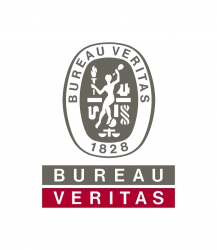 Guillaume Vileyn
Guillaume VileynSenior electricity and fire safety surveyor
Bureau Veritas Marine Inc
USA
 Marinus Jansen
Marinus JansenGlobal marine technology steward
Caterpillar Inc
Germany
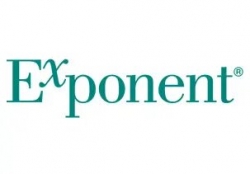 Kevin C White
Kevin C WhitePrincipal scientist
Exponent
USA
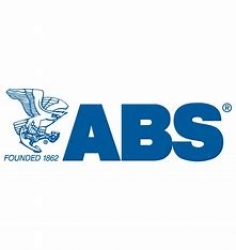 Dr Mejdi Kammoun
Dr Mejdi KammounPrincipal engineer
American Bureau of Shipping
USA
Syb ten Cate Hoedemaker, managing director, Maritime Battery Forum, Netherlands
Theater Two
Shore power and charging
09:00 - 15:05
Moderator
 Bo Jardine
Bo JardineAdvisory partner
1852 Solutions
USA
09:00
The reality of shore charging for hybrid & electric ferries
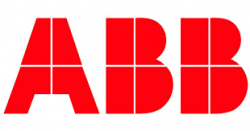 Drew Orvieto
Drew OrvietoSenior manager, passenger vessels, marine and ports
ABB Marine & Ports
USA
This presentation will be a deep dive into the challenging reality of designing, implementing, and maintaining shore charging systems for hybrid & electric ferries. The discussion will include testimonials and real-world charging data from multiple ferry operators spanning a range of vessel types, charging systems, and environmental and operational challenges.
09:25
Plugging in and charging up
 Will Ayers
Will AyersChief electrical engineer
Elliott Bay Design Group
USA
The two biggest challenges for plug-in vessels are how to connect to and store energy from shore. The technical challenges of marine batteries will be covered, but also supplier uncertainties, redesign forced by cell advances and Buy America constraints. For the power plug, even wider options exist, such as manual versus automatic, drop-down versus reach-out and bow versus beam locations. The cost of shipboard and shore-side infrastructure can often exceed that of the batteries or connection systems themselves.
09:50
Operational characteristics and requirements for a four-tug shore-base terminal
 Marinus Jansen
Marinus JansenGlobal marine technology steward
Caterpillar Inc
Germany
This presentation will share a case study on an archetypical four-tug shore-base terminal, focusing on the operational characteristics and requirements of such a marine operation and how that interfaces with the port infrastructure.
10:35
The current and future challenges of vessel electrification
 Jim Andriotis
Jim AndriotisChief technology officer
Cavotec Group
USA
The maritime industry is accelerating its move towards electrification. Many solutions have already been created to bring power from shore to vessel but there is still much to be done. In this presentation we will discuss how some of the current challenges have been solved as well as a look at what the future challenges will be and what is being done to meet them.
11:00
How best to prepare for shore power
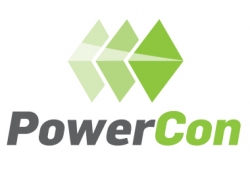 Ralf Nielsen
Ralf NielsenShore power business development manager - Americas
PowerCon USA
USA
This presentation will provide the audience with an overall understanding of the shore power as well as a checklist of specific recommendations for implementing the technology successfully. Besides an overall introduction, the presentation will also provide specific case studies of implemented projects to underline what has worked well and what other ports should take into account when starting on this journey.
11:25
Taking charge: advancing electric propulsion on the Maine Coast
 Sam Belknap
Sam BelknapDirector, Center for Marine Economy
Island Institute
USA
 Lia Morris
Lia MorrisSenior community development officer
Island Institute
USA
Island Institute's Center for the Marine Economy is leading efforts to electrify Maine’s working coast. This presentation will explain how the organization is using a unique set of state and national partnerships, funding strategies to get e-boats on the water. With commissioned reports on shoreside charging infrastructure, fleet efficiency, and workforce centered partnerships with the Community College system to ensure that electric marine propulsion properly takes hold along the working coast.
11:50
AKA’s path to zero emissions
 Jason Aspin
Jason AspinCEO
AKA Energy Systems
Canada
AKA Energy Systems specializes in energy solutions for island and microgrid power systems. With over 27 years of experience, the company has achieved multiple world firsts in hybrid power and propulsion. AKA is focused on leveraging its expertise in energy storage and solutions to drive innovation in the maritime industry toward achieving zero emissions. Jason Aspin, AKA’s CEO and co-founder, will present on the integration of hybrid applications and the
use of zero-emission generator technology. The path for the marine industry to transition to emission-free operations at sea and in port will see the utilization of a range of solutions including port electrification, ship to shore power and the integration of renewable energy sources in both port and vessel operations.
13:00
Charging infrastructure for sub 24m vessels
 Sarah Fear
Sarah FearKnowledge exchange manager
University of Plymouth
UK
 Dr Keri Collins
Dr Keri CollinsLecturer in mechanical engineering
University of Plymouth
UK
At Plymouth, a commitment to Clean Maritime permeates across a wide portfolio of research, from maritime cyber security, marine autonomy and advanced engineering to biological and environmental sciences, the arts, ORE and Big Data. This is Underpinned by strong government and sector collaboration. Taking a transdisciplinary approach to address challenges, Plymouth has been involved in some UK and World "Firsts" for e-vessels and e-charging. This presentation will share knowledge including lessons learned. In particular, what infrastructure has been installed to date, and which lessons have been learned.
13:25
A barge-based approach to lowering harbor emissions
 Michael Complita
Michael ComplitaPrincipal in charge - VP strategic expansion
Elliott Bay Design Group
USA
Ports throughout North America are setting aggressive decarbonization and emission reduction goals. As they explore options for electrification, many of these same ports are subsequently encountering significant if not impossible roadblocks. Permitting delays, construction disruption, unreliable grid power and fluctuating energy costs are just a few of the many challenges that must be addressed. Elliott Bay Design Group has developed a patent-pending alternative to conventional shore power, offering ultimate flexibility to serve both ocean-going vessels and smaller harbor craft. This mobile barge-based approach is uniquely capable of offering shore power to ships at berth and at anchor as well as fast charging all-electric vessels directly in the field where they operate. In addition, it offers lower full-cycle emissions compared with grid power, has no construction disruption or shoreside permitting requirements and is cost-competitive.
13:50
Electrification simplified
 Peter Brooks
Peter BrooksOEM account manager, marine and port solutions
BAE Systems Inc
USA
 Boaz Chai
Boaz ChaiDirector, DC products and platforms
ChargePoint
USA
This presentation will provide attendees with a review of the simplified approach to battery-electric power and propulsion solutions made possible with the adoption of the megawatt charging system (MCS).
14:15
Solving the challenges of electric express vessels - Norway as a case study
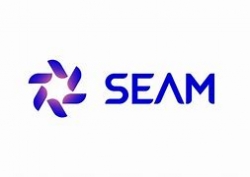 Pål G Eide
Pål G EideR&D manager
Seam
Norway
This presentation will review three different perspectives in the electrification of express vessels in Norway: Autonomous battery swap; high-speed charging; and weight optimization solutions - each with specific vessel examples.
14:40
Angel Island ferry electrification
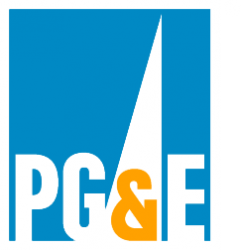 Dean Kunesh
Dean KuneshEV customer programs - clean energy transportation
Pacific Gas and Electric Company
USA
This presentation will review the project to electrify the Angel Island Ferry. This presentation is a new addition to the program and so the exact scope and details of the presentation will be defined shortly.
Theater One
Port and infrastructure projects
13:00 - 17:00
Moderator
 Teresa Bui
Teresa BuiClimate policy director
Pacific Environment
USA
13:00
Short-distance ferry service electrification under CARB regulations
 Alex Kryska
Alex KryskaCOO
Prop SF
USA
Prop is establishing a flexible and scalable private ferry service that operates throughout the San Francisco Bay Area and beyond, with a fleet of innovative vessels, strategically engineered to facilitate large service areas. In 2022, PropSF began a new passenger ferry service between San Francisco and Treasure Island. By January 2026, the service will be required by the California Air Resources Board (CARB) to use 100% zero-emission vessels. This presentation will discuss the challenges and opportunities that the regulations present, and how PropSF works to address challenges and maximize the opportunities.
13:25
Electrification of Auckland's passenger ferry network
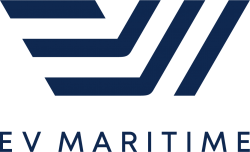 Michael Eaglen
Michael EaglenCo-founder and CEO
EV Maritime
New Zealand
The first zero emission vessels into the Auckland Transport ferry fleet will be two identical 200-passenger 25-knot battery electric fast ferries from EV Maritime, delivering in 2024. These and future vessels will be supported by a network of megawatt-level fast chargers to support high frequency commuter ferry operations. This presentation will summarize this project and draw parallels between the Auckland deployment and similar ferry systems around the USA.
13:50
San Francisco Bay’s Water Emergency Transportation Authority's transition to zero emission vessels
 Tim Hanners
Tim HannersManager of operations and maintenance
San Francisco Bay Area Water Emergency Transportation Authority
USA
 Chad Mason
Chad MasonSenior planner/project manager
San Francisco Bay Area Water Emergency Transportation Authority
USA
 Kaiya Levine
Kaiya LevineConsultant, energy engineering and power systems
Arup
USA
 Connor Bennett
Connor BennettNaval architect
Aurora Marine Design
USA
San Francisco Bay’s Water Emergency Transportation Authority (WETA) provides an important means of transportation in the Bay Area and provides emergency services when support is required. To comply with new California Air Resources Board (CARB) regulations and continue to be a leader in the sector, WETA developed a Blueprint to transition their fleet of ferries to zero-emission vessels (ZEVs) by 2035. The Blueprint was funded through California Energy Commission (CEC) grants and led by Arup and Aurora Marine Design (AMD). The Blueprint focuses on the vessel-side analyses and terminal infrastructure requirements of electrifying the fleets. This presentation will review key findings, including optimal ferry routes, projected peak energy demands, and the impacts of interconnecting battery energy storage systems. The presentation will also review the current challenges and solutions that WETA is navigating with electrifying their fleet and infrastructure. This includes understanding space constraints at the terminals, grid capacity constraints, and optimal solutions for reducing time and costs associated with zero-emission fleet implementation.
14:45
Crowley's eWolf at Port of San Diego: the United States' first electric tug
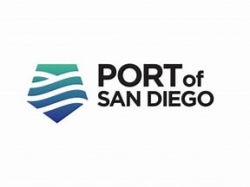 Dr Thomas MacLean
Dr Thomas MacLeanProgram director, policy and energy
Port of San Diego
USA
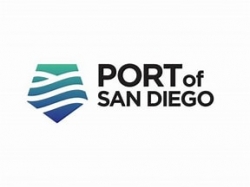 Zach Birmingham
Zach BirminghamSenior environmental specialist
Port of San Diego
USA
 Kelvin Ellis
Kelvin EllisAccount manager for the Port of San Diego
San Diego Gas and Electric
USA
 Paul Manzi
Paul ManziVP of ship assist and escort
Crowley Shipping
USA
Crowley's eWolf is a project at the Port of San Diego which includes an electric tugboat, microgrid, and landside charging infrastructure. This presentation brings together key members of the project team to discuss what it took to bring this innovative idea to reality. Thomas MacLean from Port of San Diego will direct the presentation. Paul Manzi from Crowley Shipping will speak about how the concept for the eWolf came to fruition. Zach Birmingham will provide the perspective of the Port, and Kelvin Ellis from the utility San Diego Gas and Electric will provide insight into utility considerations. Following the presentations, these technical experts and organizational representatives from the maritime, engineering, utility, and government sectors will get together and take questions from the audience and discuss this unique endeavor to deliver the United States' first electric tugboat.
15:35
How Long Beach Container Terminal plans to meet its Net Zero goals by 2030
 Bonnie Nixon
Bonnie NixonDirector of ESG and sustainability
Long Beach Container Terminal, Port of Long Beach
USA
The 2017 Clean Air Action Plan Update set the Port of Long Beach on the path to zero-emission goods movement, with a goal of transitioning terminal equipment to zero emissions by 2030 and on-road trucks by 2035. The Port is moving whilst ahead with six projects to demonstrate zero emissions equipment and advanced energy systems in Port operations. In this presentation Bonnie Nixon, the Director of Sustainability at the Port of Long Beach Container Terminal will set out the facts and figures as to what Long Beach Container Terminal has done and what it will do in order to meet its Net Zero goals by 2030.
16:00 - 17:00
Port and infrastructure projects - panel discussion
 Bonnie Nixon
Bonnie NixonDirector of ESG and sustainability
Long Beach Container Terminal, Port of Long Beach
USA
 Dr Thomas MacLean
Dr Thomas MacLeanProgram director, policy and energy
Port of San Diego
USA
 Tim Hanners
Tim HannersManager of operations and maintenance
San Francisco Bay Area Water Emergency Transportation Authority
USA
Aaron Katzenstein, deputy executive officer - Technology Advancement Office, South Coast Air Quality Management District, USA
Theater Two
Developments in ESS (day 1)
15:20 - 17:00
Moderator
 Bo Jardine
Bo JardineAdvisory partner
1852 Solutions
USA
15:20
Case study – retrofitting to hybrid-electric propulsion
 Guillaume Vileyn
Guillaume VileynSenior electricity and fire safety surveyor
Bureau Veritas Marine Inc
USA
A case study on retrofitting to hybrid-electric propulsion highlighting the considerations for ship owners and shipyards during the installation of battery systems on existing vessels. This includes existing spaces/arrangement modifications or additional battery containers on the vessel’s deck. This case study addresses the importance of risk mitigation and Bureau Veritas requirements for such vessel modifications.
15:45
Fire safety requirements for use of lithium-ion batteries in the marine and offshore industries
 Dr Mejdi Kammoun
Dr Mejdi KammounPrincipal engineer
American Bureau of Shipping
USA
This presentation will cover the American Bureau of Shipping (ABS) requirements for the use of lithium-ion battery (LIB) systems as power sources and cargo. Additionally, it will focus on the main approaches to fire safety in LIB systems for marine applications, which include prevention, detection, containment, suppression and emergency response.
16:10
Li-ion thermal runaway and quantifying the risk of explosion
 Kevin C White
Kevin C WhitePrincipal scientist
Exponent
USA
The increasing complexity and size of lithium-ion batteries and the destructive power of large lithium-ion battery packs severely challenges conventional failure analysis techniques. In this presentation we will explore advanced techniques for understanding failures in large lithium-ion battery packs, such as those used in marine electrification applications. The purpose is to quantify the risks through the lens of a failure analysis investigation conducted on a large, rack-based lithium-ion battery pack that suffered thermal runaway creating an air-fuel deflagration event that severely injured four first responders.
16:35
Ocean going potential of batteries
 Steven Henderson
Steven HendersonCEO and co-founder
Fleetzero
USA
Battery technology is advancing rapidly. Many preconceptions of their limitations for long-range marine use are based on decades old technology. In this conversation we will discuss the potential for long distance ocean going battery electric vessels along with the challenges, and means of addressing them.
